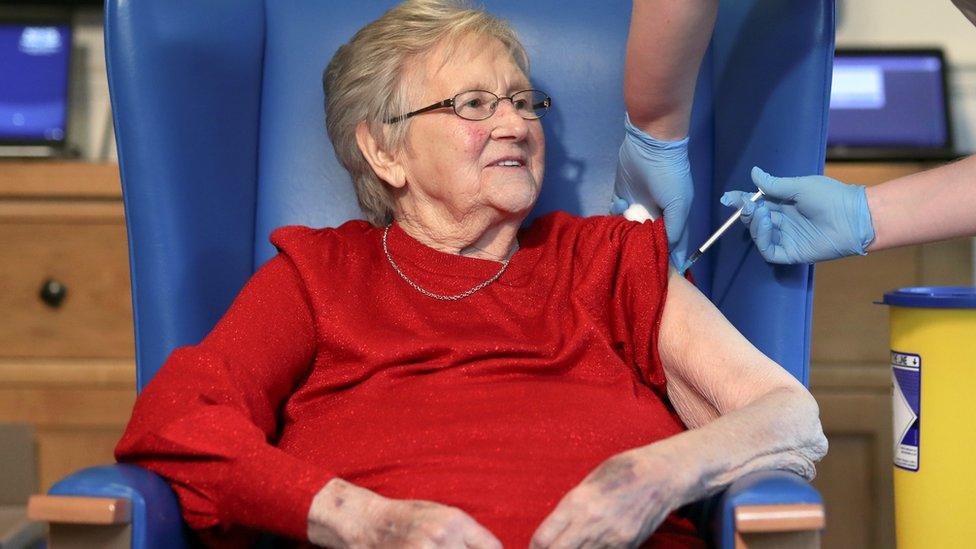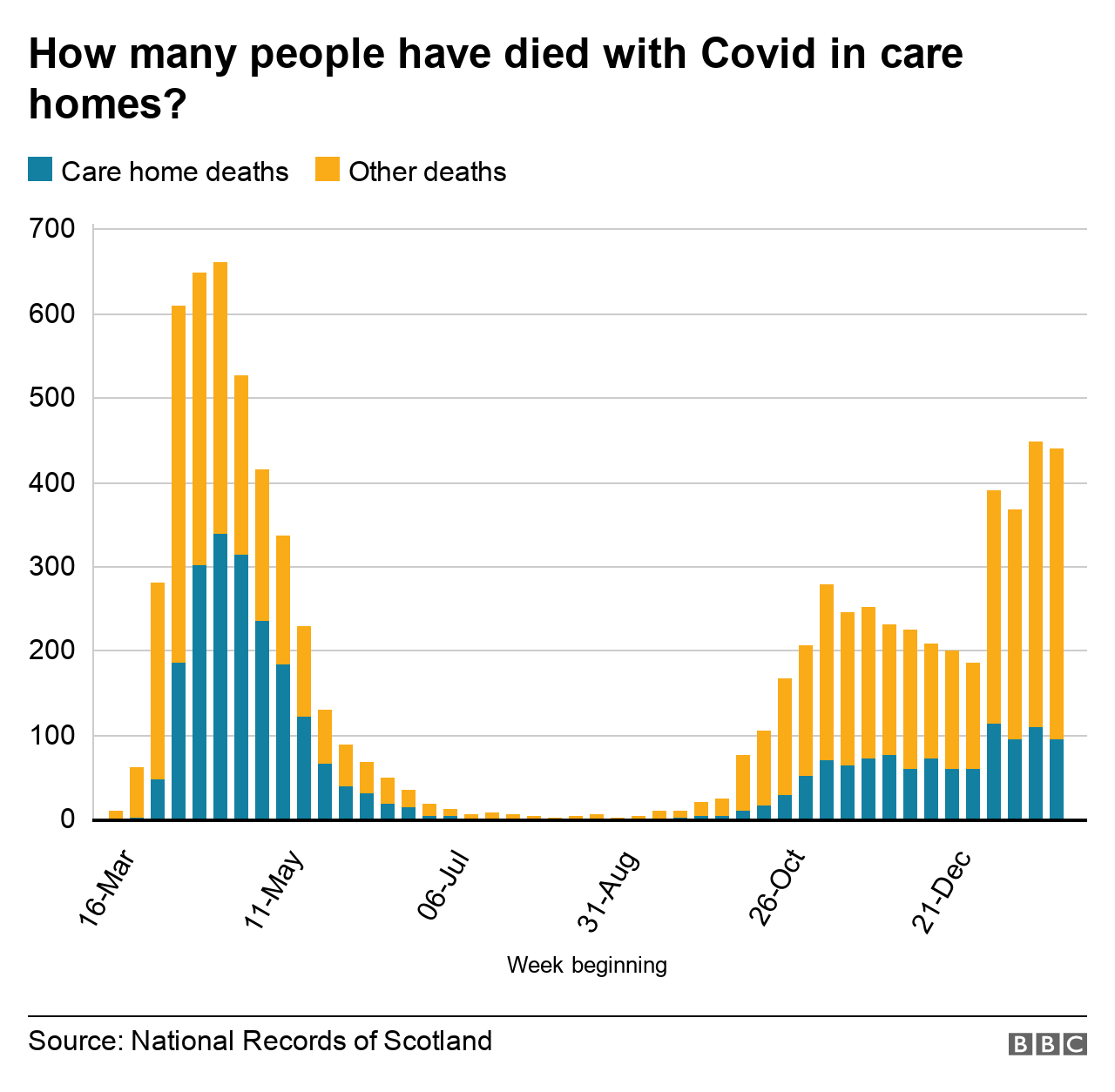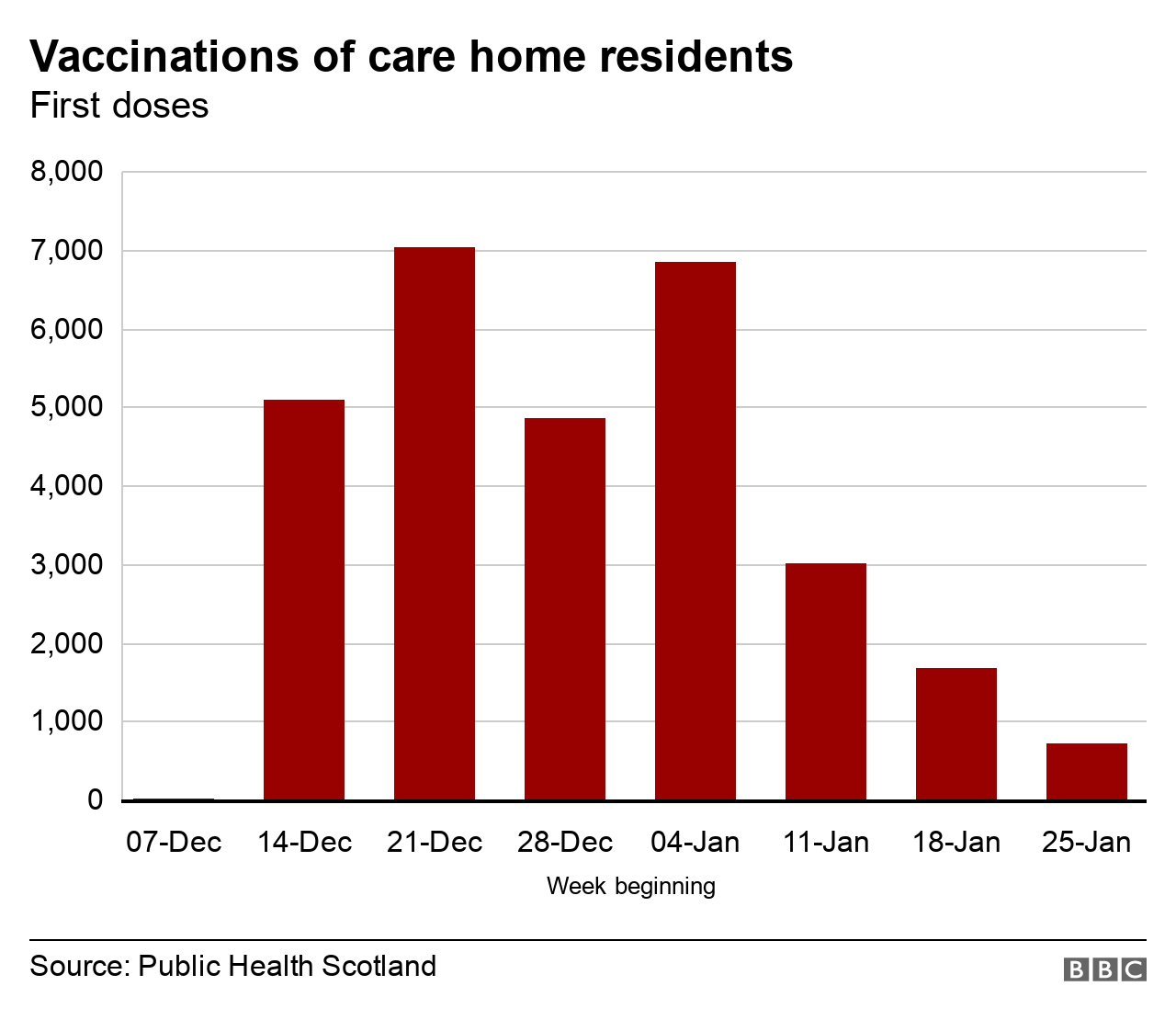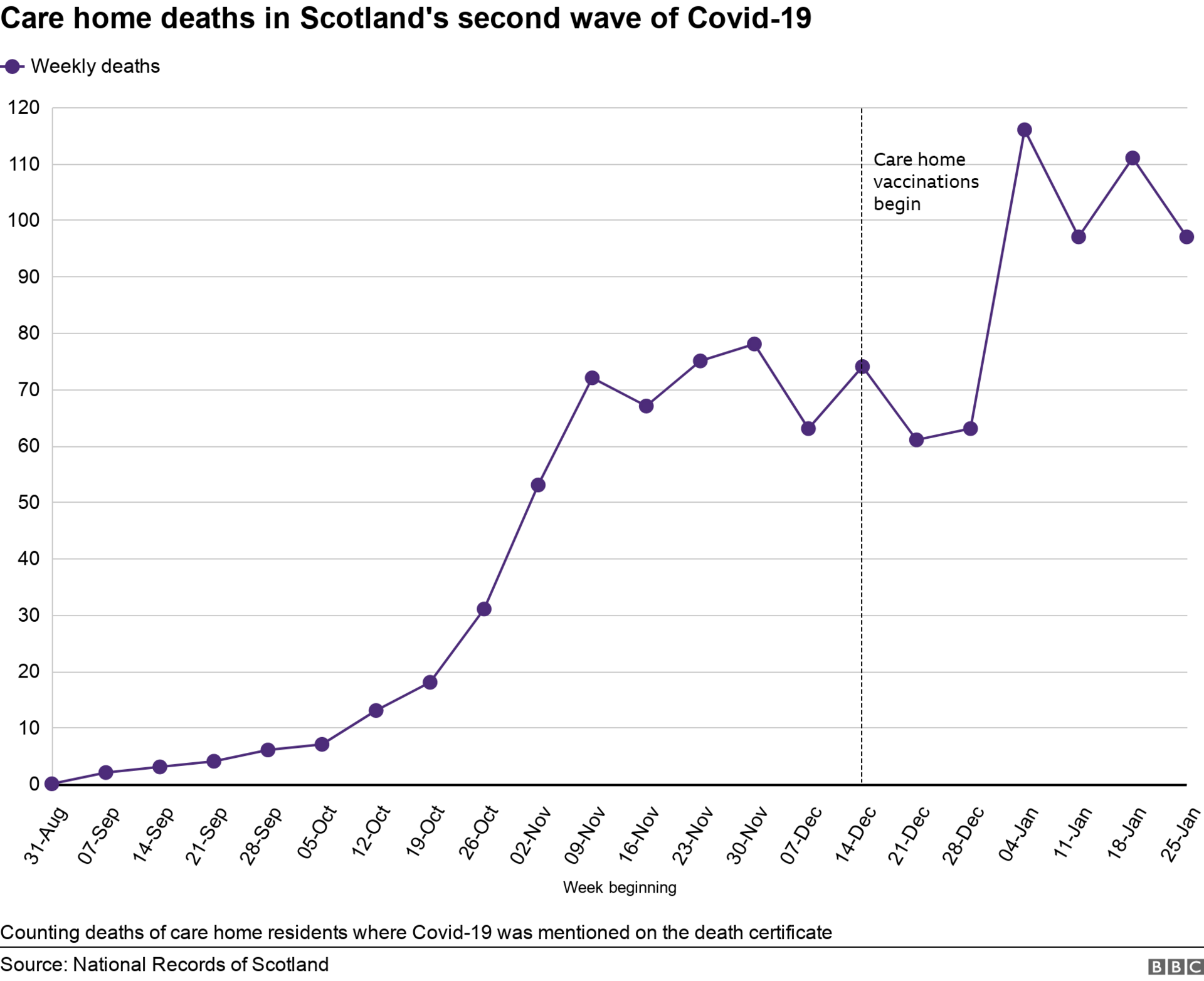Why are care home residents still dying with Covid?
- Published

Annie Innes was the first care home resident in Scotland to be vaccinated
It's more than seven weeks since the first care home resident in Scotland received her first dose of the coronavirus vaccine.
Annie Innes said she hoped it meant life could "get back to normal very soon".
Since then almost every elderly person living in a Scottish care home has been given the jab.
Yet care homes are still reporting Covid outbreaks and residents are still dying with the virus. Why?

How many people have died with Covid in Scotland's care homes?
Covid deaths in care homes reached their peak in April 2020, when more than 300 residents died with the virus in a single week.
The death toll during the second wave has been lower but still makes up a significant proportion of all coronavirus deaths.
Since Annie Innes received her first jab, 619 people have died in Scotland's care homes.
There have been outbreaks in homes in Stranraer, Invergordon,Aberdeenshire, Fife and even in the Hamilton home where Mrs Innes was immunised.
The following chart shows how many people have died with Covid in care homes, compared to places like hospitals and people's own homes.
It is based on statistics from the National Records of Scotland (NRS) which record how many people had Covid-19 listed on their death certificate, whether or not they tested positive for the virus.

When were the vaccinations rolled out to care homes?
The first doses of the Pfizer/BioNTech vaccine were administered at Abercorn House in Hamilton on 14 December last year.
Residents - including Annie Innes and Margaret Keating - posed for the media as they were vaccinated.
Inevitably it took time to reach every care home resident in Scotland.
Seven weeks after the first jabs were administered First Minister Nicola Sturgeon confirmed that 98% of Scottish care home residents had received their first dose of the vaccine.
The following chart shows that the week before Christmas and the first week of the new year were the busiest for care home vaccinators.

So why aren't care home deaths falling?
The vaccine does not provide instant immunity from the worst effects of Covid-19.
Public health expert Professor Linda Bauld said protection starts to build up in the body about 10 days after a person has the first jab.
Most people will have a "reasonable level of protection" after 21 days but it might take even longer in older people with complex immune systems, she added.
"So we can say that people are still vulnerable to infection if it gets into care homes prior to having that level of protection," Prof Bauld said.
That lag means it could be a couple of weeks before we see the real impact on care home deaths.
"I expect outbreaks to decline rapidly very soon," she said. "In a couple of weeks' time we would expect these numbers to be going down hugely."

First Minister Nicola Sturgeon also spoke about the lag effect at the Scottish government's coronavirus briefing on Monday.
She said care home residents and staff were a top priority of the vaccination programme and first doses have been administered "as quickly as possible".
But she added: "Unfortunately there will continue to be some people [who] after they are vaccinated... will become ill and unfortunately potentially die with Covid."
England's chief medical officer Chris Whitty said the vaccine was already having an impact on the total Covid death rate across the UK.
"The number of deaths in people who have had Covid is beginning to come down but... the numbers are still extremely high," he told Wednesday's UK government briefing.
He predicted they would stay high "for quite some time" before coming down.
"The first effects we will see of vaccination are likely to be on these death numbers," he added.
Prof Bauld also pointed out that the first dose of either the Pfizer or the Oxford-AstraZeneca vaccine do not provide full protection.
Most care home residents will receive a second dose of the vaccine within 12 weeks of the first.
And neither vaccine is 100% effective.
Trials showed the Oxford-AstraZeneca vaccine was 62% effective, while the Pfizer jab was 95% effective. Both produced a better result than the best flu jab, which is about 50% effective.
Prof Bauld said: "The vaccine is not going to completely eliminate risk. There might still be some cases - but there will be large reduction."

